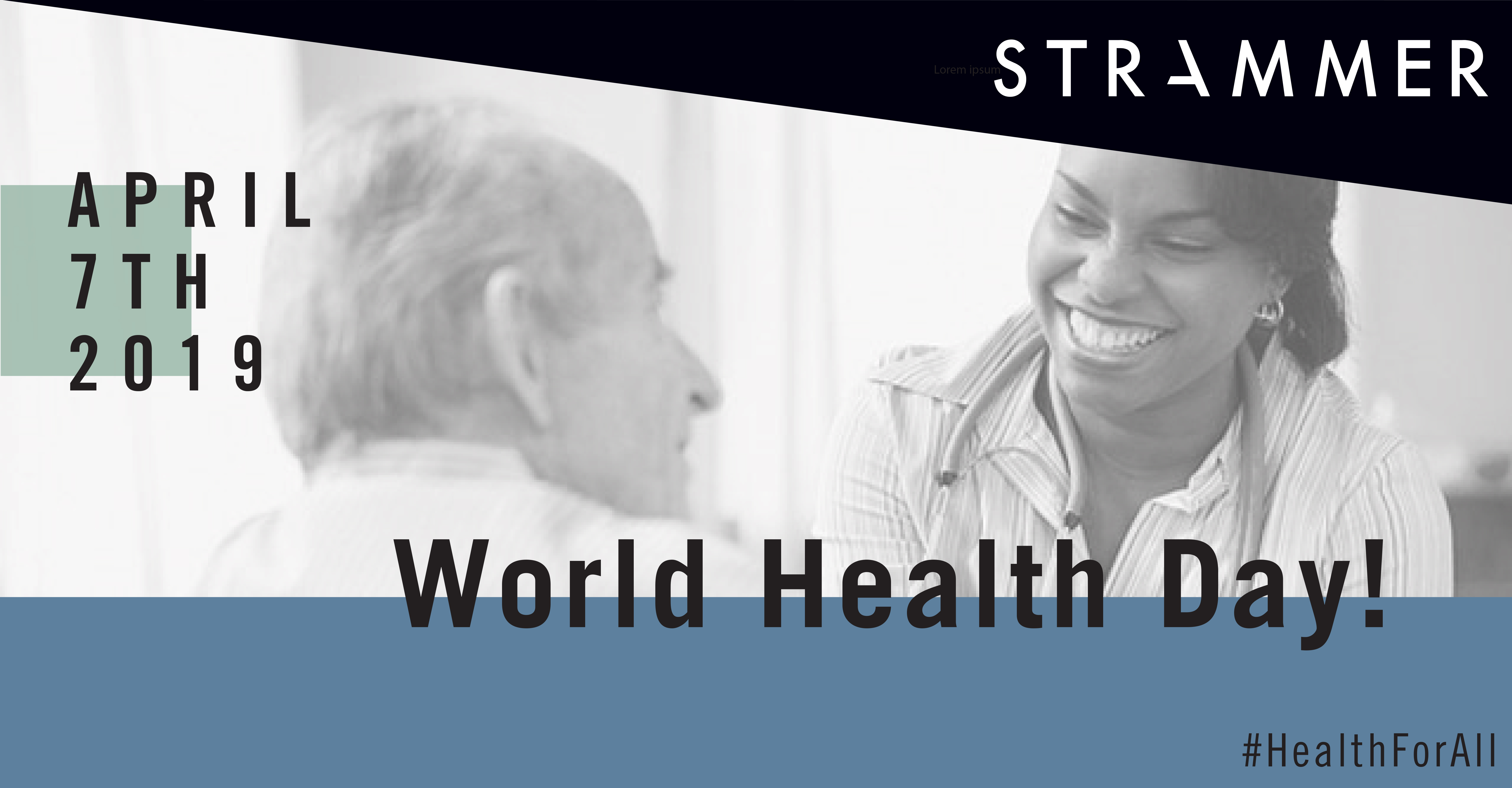Wordl Health Day 2019
Sunday, April 7th 2019 is World Health Day, a UN and World Health Organisation (WHO) observance since 1950 meant to raise awareness about the need to improve global health.
Over the past 70 years, it has brought to light a vast array of significant health issues: mental health, maternal and child care, climate change, … Activities organised by organisations are taking place all over the world and serve as an opportunity to focus attention on critical aspects of global health.
For World Health Day, the WHO also will release its annual publication of health data – the World Health Statistics Report. The report will include information on health trends in specific areas. For example born and child health, non-communicable diseases, mental health and environmental risks, as also data on universal health coverage and health systems.
Universal health coverage is the WHO’s number one goal. The key to achieving it is ensuring everyone can obtain the care they require, when they need it, where it is most comfortable for them – access to health services without discrimination of any kind and without suffering financial hardship. As an expression of ‘Health for All in the 21st century’, universal health requires the involvement of all sectors of society to combat all factors influencing people’s health: poverty, social injustice, educational and cultural gaps, poor living conditions…
Even though progress is being made towards this motive in all regions of the world, at least half of the people still do not receive the health services they need, with millions more actually forced to choose between health care and other daily expenses. The WHO is therefore focusing on universal health coverage for this year’s World Health Day.
Quality, accessible primary health care constitutes the foundation for universal health coverage. Primary healthcare should be the first level of contact with the health system – from promotion and prevention to treatment, rehabilitation and palliative care, as close as possible to where people live and work. It is a cost-effective and equitable way of delivering health services and helping countries achieve further progress towards universal health coverage.
As a human right, we need to make health for all a reality but how? Individuals and communities who have access to high-quality care need to take care of their health as well as their families’. Other actions to be taken are providing quality thanks to skilled health workers, patient-centred care and policy-makers committed to invest in primary health care.
References:
- Public Holidays Global, World Health Day 2019 and 2020
- World Health Organisation, World Health Day 2019
- World Health Organisation, Human rights and health





